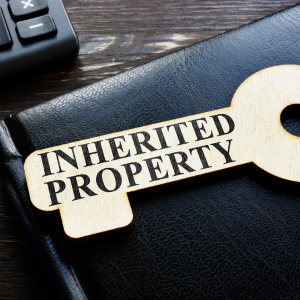
Agreeing to Sell: Legal Considerations for Heirs

Why Do All Heirs Need to Agree to Sell Property?
When multiple heirs own a property, everyone must agree to sell. Each heir shares ownership, meaning decisions about the real estate require unanimous consent. In Illinois, this helps prevent disputes and ensures fair compensation for all.
Heirs and Ownership: Co-owners have an equal say in deciding what to do with the property.
Unanimous Consent: Without agreement from all heirs, selling becomes complicated and may lead to legal issues.
Real Estate Transactions: When all heirs agree, negotiating with buyers becomes easier, and the Illinois estate settlement is quickened.

What Are the Legal Options If a Heir Disagrees?
If heirs disagree on selling a property, legal steps can be taken in Illinois.
- Probate Court Intervention: Heirs can go to probate court to resolve disputes through mediation or a legal decision.
- Partition Action: When consensus isn’t possible, an heir can file a partition action. In Illinois, this lets the court order the sale of the property and divide the proceeds among heirs without unanimous consent.
- Negotiation and Mediation: Before taking legal action, heirs can try negotiation or mediation to reach an agreement.
- Inheritance Disputes Resolution: Using less confrontational resolution methods can help maintain family relationships while addressing concerns.
These options allow for the sale of inherited properties even if all heirs do not agree, ensuring adherence to inheritance laws and protecting everyone’s interests.
For detailed guidance on these legal matters and to follow the Illinois probate process, consider contacting Illinois Real Estate Buyers. Our experts can offer insights tailored to your situation.
Impact of Illinois Laws on Selling Inherited Property

How Does Illinois Probate Law Affect Property Sales?
Selling inherited property in Illinois involves understanding probate law, which can impact the sale process. Probate is the legal procedure for managing a decedent’s estate after death. In Illinois, this ensures that assets are distributed according to the will or state intestacy laws if no will exists.
Probate Court’s Role: The probate court oversees estate management, ensuring legality and the rights of all heirs. The executor, named in the will or appointed by the court, handles estate tasks, including selling property.
Legal Requirements: Before selling inherited property, heirs must follow specific laws. If probate is required, the court might need to approve the sale. This means submitting a real estate sales plan to the court showing the intention to sell.
Impact on Heirs: Probate can delay when heirs receive their inheritance. Heirs should work with the executor and give consent if needed, especially if the property sale is part of settling the estate.
Understanding Illinois probate laws is key for heirs and executors selling inherited property. Consulting a legal professional for expert help is recommended.

What Is Required for a Valid Heir Agreement in Illinois?
A valid heir agreement is necessary to sell their property in Illinois. This agreement clarifies the heirs’ intentions and consent regarding property division and sale.
Unanimous Consent: Illinois probate laws require all heirs to agree before selling property. Every heir must accept the terms in the heir property sale agreement.
Heirs’ Consent Legal Requirements: Heirs must legally acknowledge their share of the inheritance and agree to the sale terms. Without unanimous consent, legal challenges may arise, complicating the probate process.
Inheritance Share Agreement: This document details each heir’s property share and how sale proceeds are divided. It helps maintain clarity among all parties to avoid disputes.
Family Property Division Laws: These laws ensure the fair division of family property in Illinois. Following these rules in an heir agreement helps avoid future legal issues.
Drafting a thorough heir agreement is crucial for those handling inherited property sales. Legal advice can provide essential insights into meeting all legal and procedural requirements.
Resolving Disputes Among Heirs Over Property Sales

What Are Common Causes of Disagreement Among Heirs?
Disagreements among heirs over property sales are common in Illinois. These disputes can result from unclear or seemingly unfair wills, leading to inheritance disputes. When multiple heirs co-own an inherited property, they may disagree on selling or keeping it. Issues can also arise when heirs can’t agree on dividing the inherited property, mainly if each person interprets family property division laws differently.
Knowing these causes helps in solving such disputes. Being familiar with Illinois family property division laws can prevent conflicts before they happen. Open communication among all parties involved is key to avoiding misunderstandings and promoting a cooperative approach.

How Can Mediation Help in Resolving Heir Disputes?
Mediation is a helpful way to resolve disputes among heirs. Families can discuss their disagreements in a more friendly setting by involving a neutral third party. Mediation for their disputes offers a less combative environment than going to court, which is helpful when dealing with delicate family matters.
In mediation, families can discuss the legal process for selling a decedent’s property and how to distribute estate assets. This helps heirs reach an agreement without lengthy court battles. In Illinois, probate legal services often include mediation in resolving inheritance disputes, ensuring adherence to all legal requirements.
For those facing disagreements over selling inherited property, mediation can help find a fair and legal solution while maintaining family ties. To guide heirs through this process effectively, consulting with experienced professionals is advised.
Financial Implications for Heirs Selling Property

What Are the Tax Implications for Heirs in Illinois?
When heirs inherit property in Illinois, they face various tax issues. Though Illinois doesn’t impose an inheritance tax, federal estate taxes might apply if the estate is large enough.
- Inheritance Tax: While there’s no state inheritance tax, understanding federal estate tax thresholds is essential. Estates above this limit are taxed federally, which can affect the net inheritance.
- Capital Gains Taxes: Heirs may need to pay capital gains taxes when selling inherited property. Generally, the property’s basis is adjusted to its market value at the decedent’s death. This adjustment can lower the capital gains and reduce the tax burden when the property is sold.
- Probate and Estate Taxes: Probate may involve taxes related to estate management. Consulting a tax advisor can clarify estate-related taxes and liabilities.
Understanding these tax implications helps heirs make informed financial decisions. Working with a probate attorney or financial advisor can ensure compliance with tax laws and help maximize the inheritance’s value.

How Can Heirs Maximize Their Financial Returns?
To get the best financial outcome from selling inherited property in Illinois, heirs should plan strategically and seek professional help.
Real Estate Experts: Hiring experienced real estate professionals is crucial. A knowledgeable agent can provide insights into local market trends and guide the selling process, boosting the financial return.
Appraisal and Valuation: Getting a professional appraisal gives an accurate property valuation. Knowing the current value helps set a competitive price, attracting buyers without underselling.
Understanding Heirs Property Rights in Illinois: Familiarity with local property rights protects heirs’ interests. Legal advice can address any complications with inherited properties and facilitate smooth transactions.
Heirs aiming for better financial returns should use professional expertise and stay informed about market conditions. Employing strategies like appraisals, effective marketing, and skilled negotiation can lead to considerable profits from selling inherited property.
Practical Steps for Heirs to Successfully Sell Property

What Documents Are Essential for a Smooth Sale?
Specific documents are essential for a smooth sale process when heirs sell inherited property. Due to legal and financial considerations, the task can be complex.
Property Deed: This document proves ownership and is needed to transfer the title to the buyer.
Probate Records: These records, including the will and court orders, ensure that assets are distributed according to the deceased’s wishes or state law.
Executor’s Authority: If an executor manages the estate, documentation of their legal authority is necessary.
Legal Requirements: Consulting an attorney experienced in Illinois real estate and probate laws helps ensure that you meet all legal requirements when selling inherited property.
Property Title Transfer Documentation: In Illinois, transferring a property title might require additional forms or filings, which should be managed carefully.
How Should Heirs Prepare the Property for Sale?
Preparing inherited property for sale involves strategic steps to maximize its value in the real estate market.
Engage a Real Estate Expert: A knowledgeable agent provides market insights and helps price the property competitively, guiding heirs through marketing and negotiations.
Obtain an Appraisal: A professional appraisal offers an unbiased estimate of the property’s value, crucial for setting a realistic price.
Address Maintenance and Repairs: Keep the property in good condition by completing necessary repairs, enhancing curb appeal, and attracting buyers.
Seek Legal Guidance: An attorney familiar with estate matters ensures compliance with relevant laws, making the sale smoother. Understanding real estate laws for heirs is vital, especially in Illinois.
Navigate Potential Challenges: Selling inherited property can present challenges, such as differing opinions among heirs. Clear communication or mediation can resolve conflicts.
By following these steps, heirs can successfully navigate selling property’s legal and logistical aspects. Assistance from Illinois Real Estate Buyers can be particularly helpful.
FAQs:
Do All Heirs Need to Agree to Sell Inherited Property in Illinois?
In Illinois, all heirs usually agree to sell a property they share. If there’s a disagreement, a court may need to intervene through a process called partition action to help resolve the dispute and distribute the sale proceeds.
What Happens if Heirs Can’t Agree on Selling a Property in Illinois?
If heirs disagree on selling a property, legal or mediation services can help. A petition for probate or a partition action might be required, where the court decides how to divide or sell the property reasonably.
How Does Joint Tenancy Affect the Sale of Inherited Property in Illinois?
In joint tenancy, all owners have equal rights to the property. Selling requires the consent of all joint tenants unless legal actions, such as a partition, are taken. Understanding Illinois’s joint tenancy rules is essential.
Can One Heir Force the Sale of a Property Without Others’ Consent?
Usually, one heir cannot force a sale without others’ agreement. They may, however, request a court-ordered partition action to split or sell the property. The court will distribute the proceeds among heirs as it sees fit.
What Role Does an Executor Play in Selling Estate Properties in Illinois?
An executor manages estate assets, including real estate, and can sell property with court approval. They ensure the sale complies with Illinois laws and the deceased’s wishes.
Are There Tax Implications When Selling Inherited Property in Illinois?
Yes, selling inherited property may trigger inheritance and capital gains taxes, depending on valuation and timing. Consulting a lawyer helps in understanding these tax obligations and optimizing financial outcomes.
What is Tenancy by the Entirety, and How Does It Impact Property Sales in Illinois?
Tenancy by the entirety allows married couples to own property together with survivorship rights. Both spouses must agree to sell the property, and it is protected from creditors unless both consent to the sale.
What Expert Advice is Available for Selling Inherited Property in Illinois?
Consulting Illinois real estate attorneys or brokers provide guidance on legal requirements and market conditions. They can also assist with probate processes, dispute resolution, and smooth property sales.
Key Insights
- In Illinois, all heirs must agree to sell the property they co-own through intestate succession or other means. This ensures a unanimous decision to sell inherited property.
- Inheritance disputes can arise in Illinois when heirs disagree about selling a property. Mediation or legal actions like partition may be needed to resolve these issues.
- Executors in Illinois have specific duties and authority, including resolving disputes and managing the sale of a deceased person’s home while following legal requirements and probate listings.
- Co-ownership, such as tenancy in common or joint tenancy, requires all heirs’ consent to sell property in Illinois. This must be documented with a proper property sale agreement.
- Illinois real estate laws govern the consent needed to sell property. This also impacts property title transfers and the role of an attorney for probate during estate liquidation.
- Selling property without all heirs’ approval can face legal challenges, highlighting the importance of estate planning and understanding family property division laws.
- Illinois inheritance laws and executor duties emphasize the need to comply with ownership rights and seek legal advice for selling inherited houses. Estate executor powers are clearly defined.
- Legal steps to sell inherited property include valuation, resolving disagreements among heirs, and understanding Illinois joint tenancy rules and inheritance taxes.
This information applies to Illinois and its cities, including Chicago, Naperville, Hanover Park, Hickory Hills, and more. For more details, please contact us at (773) 305-6373 or visit our website at Illinois Real Estate Buyers.
Get An Offer Today, Sell In A Matter Of Days…
Resources To Help You Sell A House In Illinois
| How to Sell a House as-is in Illinois | Selling A House With Fire Damage In Illinois |
| Do All Heirs Have to Agree to Sell Property in IL |


